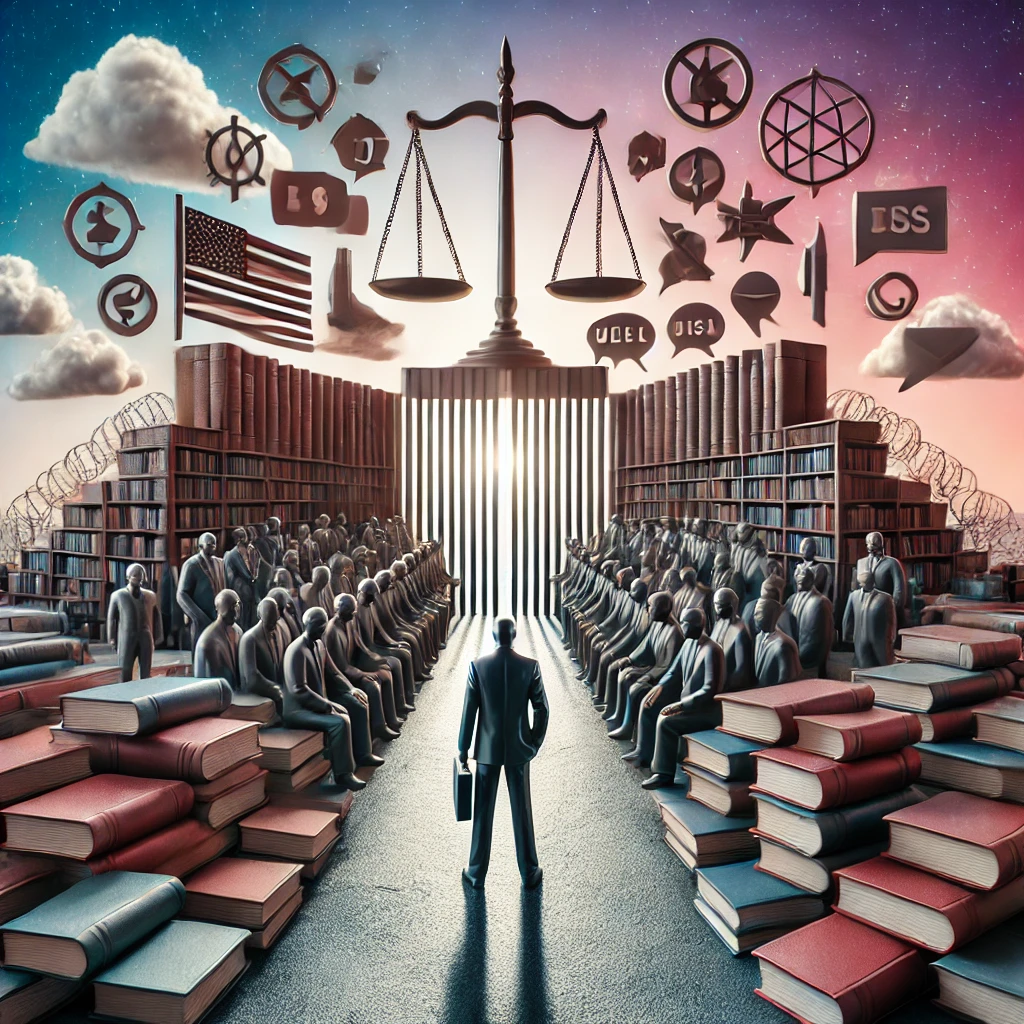
When Free Speech Meets Immigration Law: U.S. Government’s Authority to Exclude Individuals for Their Beliefs
Kleindienst v. Mandel, 408 U.S. 753 (1972)
Understanding the Case and Its Outcome
Facts of the Case
- The case revolved around Ernest Mandel, a Belgian journalist, Marxist scholar, and political thinker invited to the United States to attend academic conferences and debates.
- The U.S. government denied Mandel a visa, citing a provision in immigration law that barred individuals who advocate communist ideologies.
- The Attorney General refused to waive Mandel’s ineligibility, citing concerns about his past misuse of a visa during a prior visit, where he engaged in unscheduled activities.
- Mandel, along with American scholars who invited him, argued that denying him entry violated the First Amendment rights of U.S. citizens to hear and engage with his ideas through in-person debates and discussions.
Legal Issue
Was the U.S. government’s decision to exclude Mandel an infringement upon the First Amendment rights of Americans who wished to hear him speak in person?
Analysis
The Court’s Balancing Act:
- The Supreme Court acknowledged that the First Amendment protects the right of Americans to receive information and engage in discussions.
- However, it reaffirmed Congress’ broad and exclusive authority over immigration, including the power to exclude aliens.
Judicial Deference to Executive Power:
- The Court emphasized that Congress had delegated the discretion to exclude individuals like Mandel to the Executive Branch.
- When the government provides a “facially legitimate and bona fide reason” for exclusion, courts should not second-guess or “look behind” that decision, even if constitutional interests like free speech are implicated.
Limits of Judicial Oversight:
- The Court concluded that the Attorney General’s stated reason—Mandel’s alleged abuse of visa conditions during a previous visit—was sufficient to justify the denial.
- The decision was consistent with the government’s authority to exclude individuals under immigration laws.
Outcome
- The Supreme Court ruled in favor of the government, holding that the decision to exclude Mandel did not violate the First Amendment rights of the American scholars.
- The Court reversed a lower court ruling that had found the exclusion unconstitutional.
Key Takeaways for Non-Legal Audiences
- Government Authority: The U.S. government has broad authority to exclude foreign nationals from entering the country, even if the exclusion impacts the ability of Americans to engage in academic or political discourse.
- Judicial Deference: In cases where the government provides a legitimate reason for exclusion, courts generally defer to the Executive Branch’s discretion.
- First Amendment Limitations: This case affirmed that immigration law can place limits on First Amendment freedoms when balanced against the government’s interest in controlling who enters the country.
The Broader Implications
For Immigration Policy:
This case underscores the government’s near-plenary power in regulating immigration, including decisions based on ideological grounds.
For First Amendment Rights:
While Americans have the right to hear ideas, this right is not absolute and can be constrained when it intersects with immigration controls.
For Academic Freedom:
The case highlights the tension between academic openness and governmental authority to regulate entry based on perceived threats or ideological concerns.
Let’s Get Started
Your legal challenges deserve personalized attention and innovative solutions. Contact Oware Justice Advocates PC today for a consultation and take the first step toward resolution and peace of mind.
355 South Teller Street, Suite 204,
Lakewood, CO 80226
(Visits to the office are strictly by appointment only)
303-514-6589

